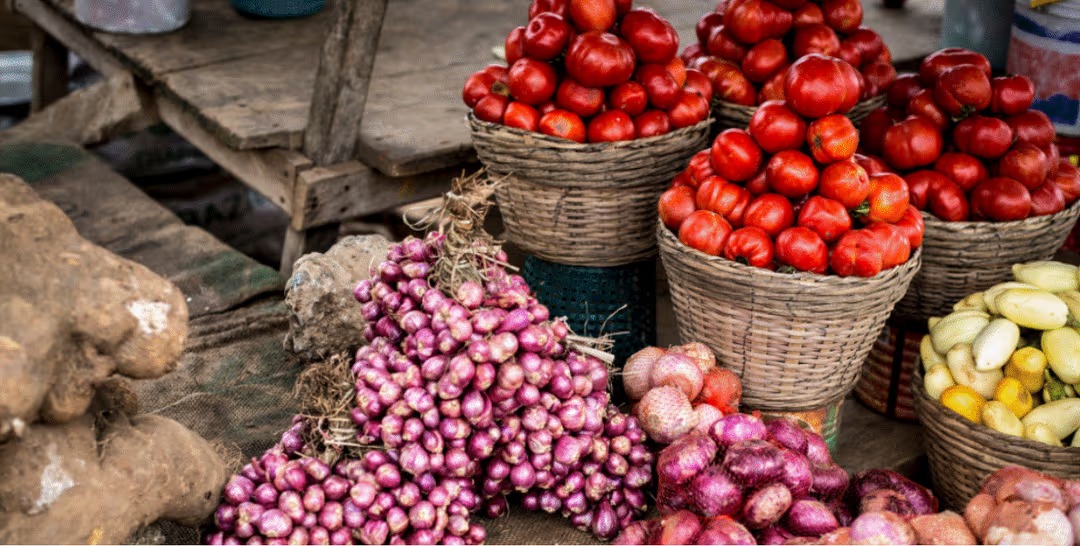IMANI Africa has said that Ghana’s food insecurity crisis is deepening, revealing the growing fragility of the country’s food systems and the uneven impact of economic recovery across regions and households.
IMANI quoted a Ghana Statistical Service (GSS) report, which stated that 13.3 million Ghanaians were food insecure by the end of 2024, a 7.3% rise.
This means that limited access, availability, and utilisation of food are at play in driving this deterioration, IMANI said.
“The problem is not evenly spread: the Volta Region recorded the highest rate at 52%, while Greater Accra’s rate rose sharply from 20.2% to 29%. The burden also falls unevenly across households; female-headed households are 44% food insecure, compared to 37% among male-headed households. Nutritional impacts are rising as well: underweight children in food-insecure homes increased from 38% to 44.9%. In short, food insecurity in Ghana is no longer a rural or seasonal issue; it is a systemic one affecting both access and affordability nationwide,” it said in its “Critical Analysis of Governance and Economic Issues October 13-18, 2025″ report.
At the 45th World Food Day celebration in Accra, UN Resident Coordinator Zia Choudhury drew attention to the deeper structural issues behind these figures.
He pointed to poor working conditions for women in food processing, low and unstable earnings for farmers, and a lack of resilience and inclusivity in Ghana’s food systems. The call was clear: Ghana must move from short-term relief measures to a more sustainable and equitable food system built on resilience, safety, and inclusivity.
Earlier in August, the World Food Programme’s Ghana Country Brief underscored how environmental and economic stressors are converging to worsen the crisis.
It linked rising food insecurity to climate change, poor infrastructure, and low prices for farm produce, which discourage production and investment. The report also warned that Ghana’s position as a food-deficit nation makes it highly vulnerable to global price spikes, particularly for staples such as imported rice. The WFP highlighted the burden of malnutrition, persistent child stunting and widespread vitamin deficiencies. The Cost of Hunger in Africa study estimates Ghana loses 6.4% of GDP each year due to undernutrition, while poverty remains high at 23.3%, with over 677,000 people living in extreme poverty. These figures reflect the economic and human cost of an uncoordinated food system under stress.
“The GSS data, UN warning, and WFP brief all point to the same conclusion: Ghana’s food insecurity problem is not just about production, it is about coordination and resilience. Fragmented agricultural policies, limited post-harvest infrastructure, and the weak integration of nutrition and social protection programmes have created a system that cannot guarantee consistent food access. Economic growth alone has not translated into nutritional security, and without structural reform, even temporary gains will remain fragile. If unaddressed, the country risks facing a deeper social and economic challenge. Rising food insecurity will undermine public health, especially among children and women; intensify poverty in rural areas; and weaken labor productivity, slowing the pace of recovery. It will also test fiscal policy credibility, as inflation in food prices often drives broader cost-of-living crises and social unrest,” IMANI said.
It added that Ghana’s path forward requires shifting from reactive relief to systemic reform.
“Invest in climate-resilient agriculture, transport infrastructure, and modern storage facilities to stabilise supply chains. Strengthen market access and farmer incomes, ensuring smallholders benefit from fair pricing and infrastructure. Promote nutrition education and food safety, especially in schools and local markets, and use data-driven policies to target vulnerable regions and monitor food system resilience.”
These actions, coordinated through an integrated food policy framework, can turn current vulnerabilities into opportunities for inclusive growth. Feeding the nation must now go beyond agricultural output to building a food system that protects livelihoods, health, and national stability alike, it said.













 Sompaonline.com offers its reading audience with a comprehensive online source for up-to-the-minute news about politics, business, entertainment and other issues in Ghana
Sompaonline.com offers its reading audience with a comprehensive online source for up-to-the-minute news about politics, business, entertainment and other issues in Ghana